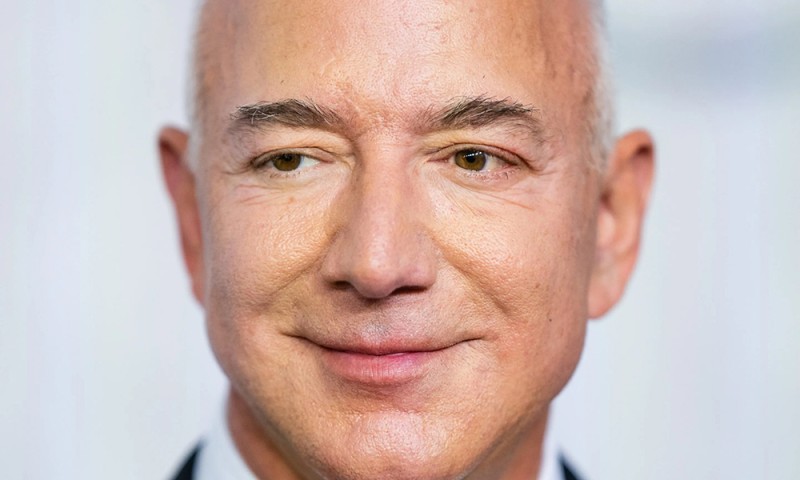
亚马逊(Amazon)创始人杰夫·贝佐斯对职场压力提出了一种反直觉的见解:压力并非源于努力工作本身,而是来自回避那些明知需要解决的问题。在2001年的一次访谈中,贝佐斯表示:“压力主要来自对力所能及之事未能采取行动。”
当时,贝佐斯刚在亚马逊1997年首次公开募股(IPO)后跻身亿万富翁行列,他在圣安东尼奥举行的“成就学会峰会”(Academy of Achievement Summit)上发表讲话。他将压力描述为一种警示信号,而非高强度工作的必然副产品。贝佐斯表示:“如果我发现某件具体的事情让我感到有压力,那对我来说就是一个警示信号。这意味着某个我尚未完全识别的因素正在困扰着我,它可能潜藏在我的意识层面,而我尚未对此采取任何行动。”
贝佐斯指出,即便根本问题尚未解决,但只要迈出一小步,例如打一通电话或发一封电子邮件,就能显著降低压力水平。“我发现,一旦识别出问题并打出第一个电话,或发出第一封邮件,或者采取任何开始解决问题的行动,即便问题尚未解决,仅仅是着手处理问题这一事实,就能极大缓解可能由此产生的压力。”
贝佐斯表示,社会上存在一个普遍误解,认为压力往往源自努力工作,而他完全不认同这种观点。他表示:“压力并非来自努力工作。你可以拼命工作并乐在其中。同样,你也可能处于失业状态,并因此承受巨大压力。”
这位亚马逊创始人将这一逻辑延伸至求职领域,对比了主动与被动应对失业的方式。“如果你处于失业状态,但采取系统化的应对方式,如参加一系列面试等,并努力改善处境,你的压力将远低于那些只会焦虑却不采取行动的人。”
关于压力管理的研究
贝佐斯的见解与心理学领域既有的应对策略研究不谋而合。研究表明,相较于单纯管理情绪的情感聚焦型应对方式,采取直接行动应对压力源的问题聚焦型应对策略更能有效缓解压力。研究发现,运用主动解决问题策略的人群报告的压力水平更低,心理健康状况更佳。相反,贝佐斯所警示的回避行为,即拖延症,已被证实与压力增加、焦虑甚至身体健康问题密切相关。
许多心理健康专家建议采用问题聚焦型应对技巧来管理职场压力。这些方法包括识别具体压力源、将复杂问题分解为可操作的步骤,以及采取具体行动而非反复沉溺于困境思考。这种应对方式并不意味着忽视情绪,而是如贝佐斯所建议的那样,将情绪能量引导至建设性的行动之中。(*)
《财富》杂志使用生成式AI辅助完成本文的初稿。编辑在发表前已核实信息的准确性。
译者:刘进龙
审校:汪皓
亚马逊(Amazon)创始人杰夫·贝佐斯对职场压力提出了一种反直觉的见解:压力并非源于努力工作本身,而是来自回避那些明知需要解决的问题。在2001年的一次访谈中,贝佐斯表示:“压力主要来自对力所能及之事未能采取行动。”
当时,贝佐斯刚在亚马逊1997年首次公开募股(IPO)后跻身亿万富翁行列,他在圣安东尼奥举行的“成就学会峰会”(Academy of Achievement Summit)上发表讲话。他将压力描述为一种警示信号,而非高强度工作的必然副产品。贝佐斯表示:“如果我发现某件具体的事情让我感到有压力,那对我来说就是一个警示信号。这意味着某个我尚未完全识别的因素正在困扰着我,它可能潜藏在我的意识层面,而我尚未对此采取任何行动。”
贝佐斯指出,即便根本问题尚未解决,但只要迈出一小步,例如打一通电话或发一封电子邮件,就能显著降低压力水平。“我发现,一旦识别出问题并打出第一个电话,或发出第一封邮件,或者采取任何开始解决问题的行动,即便问题尚未解决,仅仅是着手处理问题这一事实,就能极大缓解可能由此产生的压力。”
贝佐斯表示,社会上存在一个普遍误解,认为压力往往源自努力工作,而他完全不认同这种观点。他表示:“压力并非来自努力工作。你可以拼命工作并乐在其中。同样,你也可能处于失业状态,并因此承受巨大压力。”
这位亚马逊创始人将这一逻辑延伸至求职领域,对比了主动与被动应对失业的方式。“如果你处于失业状态,但采取系统化的应对方式,如参加一系列面试等,并努力改善处境,你的压力将远低于那些只会焦虑却不采取行动的人。”
关于压力管理的研究
贝佐斯的见解与心理学领域既有的应对策略研究不谋而合。研究表明,相较于单纯管理情绪的情感聚焦型应对方式,采取直接行动应对压力源的问题聚焦型应对策略更能有效缓解压力。研究发现,运用主动解决问题策略的人群报告的压力水平更低,心理健康状况更佳。相反,贝佐斯所警示的回避行为,即拖延症,已被证实与压力增加、焦虑甚至身体健康问题密切相关。
许多心理健康专家建议采用问题聚焦型应对技巧来管理职场压力。这些方法包括识别具体压力源、将复杂问题分解为可操作的步骤,以及采取具体行动而非反复沉溺于困境思考。这种应对方式并不意味着忽视情绪,而是如贝佐斯所建议的那样,将情绪能量引导至建设性的行动之中。(*)
《财富》杂志使用生成式AI辅助完成本文的初稿。编辑在发表前已核实信息的准确性。
译者:刘进龙
审校:汪皓
Amazon founder Jeff Bezos has a counterintuitive take on workplace stress: It doesn’t come from hard work itself, but from avoiding problems you know you need to address. In a 2001 interview Bezos said, “Stress primarily comes from not taking action over something that you can have some control over.”
Bezos, then a freshly minted billionaire following Amazon’s 1997 IPO, was talking at the Academy of Achievement Summit in San Antonio. He described stress as a warning signal rather than an inevitable byproduct of demanding work. “So if I find that some particular thing is causing me to have stress, that’s a warning flag for me,” Bezos said. “What it means is there’s something that I haven’t completely identified, perhaps in my conscious mind, that is bothering me, and I haven’t yet taken any action on it.”
Bezos said just taking a small first step—making a phone call, or sending an email—can dramatically reduce stress levels, even before the underlying problem is solved. “I find as soon as I identify it and make the first phone call, or send off the first email message, or whatever it is that we’re going to do to start to address that situation—even if it’s not solved—the mere fact that we’re addressing it dramatically reduces any stress that might come from it.”
Bezos said there’s a common misconception that stress often comes from hard work, and he completely disagrees with that sentiment. “Stress doesn’t come from hard work,” he said. “You can be working incredibly hard and loving it. And likewise, you can be out of work and incredibly stressed over that.”
The Amazon founder extended this logic to job-seeking, contrasting active and passive approaches to unemployment. “If you’re out of work, but you’re going through a disciplined approach—a series of job interviews, and so on—and working to remedy that situation, you’re going to be a lot less stressed than if you’re just worrying about it and doing nothing.”
What research says about stress management
Bezos’s observations align with established psychological research on coping strategies. Studies show that problem-focused coping—taking direct action to address stressors—is more effective at reducing stress than emotion-focused approaches that simply manage feelings. Research has found that people who use active problem-solving report lower stress levels and better mental health outcomes. Conversely, procrastination—the avoidance Bezos warns against—has been linked to increased stress, anxiety, and even physical health problems.
Many mental health professionals recommend problem-focused coping techniques for managing workplace stress. These include identifying specific stressors, breaking large problems into manageable steps, and taking concrete action rather than ruminating on difficulties. The approach doesn’t mean ignoring emotions, but rather, like Bezos suggests, channeling them into productive action.
For this story, Fortune used generative AI to help with an initial draft. An editor verified the accuracy of the information before publishing.

